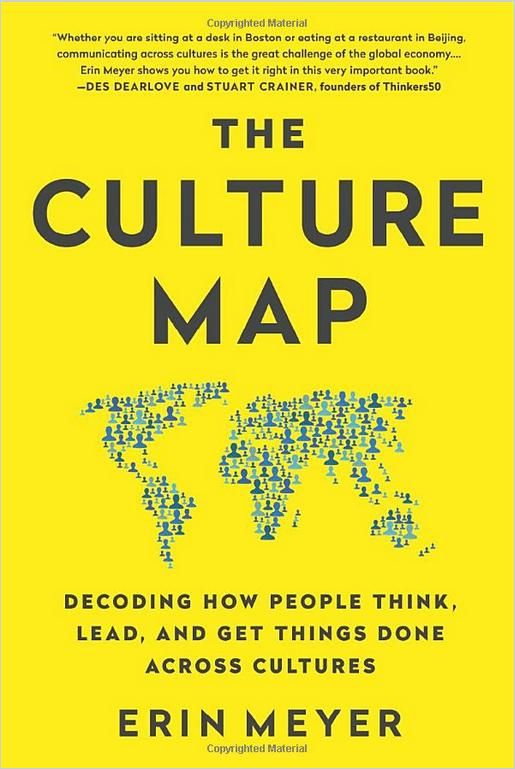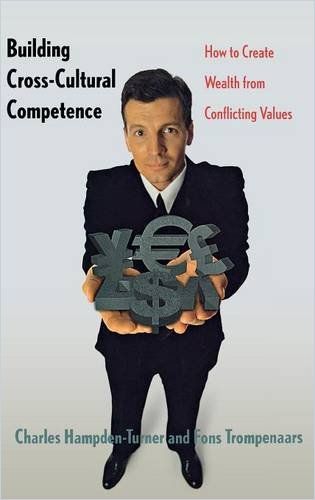Culture Crash

Imagine a good friend giving you a ride in his car. He drives a bit too fast and eventually slightly brushes a pedestrian with the vehicle. Nothing dramatic, yet in the investigation, the incident is put on trial in which you are asked to give evidence as the only witness. Before your statement, your friend asks you to lie about his speeding. What do you do?
This is a pretty uncomfortable situation. You are caught in a dilemma. And everybody can sympathize with that dilemma, no matter the cultural background. Would you lie for a friend? Research shows that the answer to that question is closely tied to cultural upbringing.

Communication expert Fons Trompenaars found that most Americans answer that question as follows: “The law stands above friendship. Therefore I will not lie for my buddy.” An Indian, on the other hand, is far more likely to say: “Friendship in our culture is of more value than laws, so of course I will give false testimony for my friend.” The Italian says: “What-a exactly-a is a lie-a?” And Germans will go: “Lie or no lie, who cares, but what happened to the CAR?”
Note
Our columnist Vince Ebert speaks at congresses, conferences and company celebrations in German and English on the topics of success, innovation and digitization. Here you can hire Vince Ebert as a keynote speaker for your event.
Anyone traveling the world knows how people from other cultures can perceive one and the same issue very differently, and react to it and judge it accordingly. For example, most Germans think Americans are crazy about running around with a gun at the ready. But they will likely feel the same of us when they hear that we drive on our highways at the speed of a cruise missile.
In the United States, ice-cold chlorinated tap water is part of good service. In Germany, it’s considered assault.
Vince Ebert
My Austrian wife Valerie has completely different standards than I do. She likes to make fun of me when my German self is worried about what other cultures might think of us. As soon as the typical German is a guest in a foreign country, they tend to chum up the host. If a Deutsche Bahn train runs 10 minutes late, we throw a fit, but when in Calcutta, we enchanted roll our eyes if the bus doesn’t show in three days. “Ah, those Indians, they are so casual. Their concept of time is so unique and original!”
Valerie has no time for an attitude like mine. She claims: “We Habsburgers were once a world empire. Everyone was looking up to us and followed our lead.” That’s how confidently she carries herself in foreign lands. I, on the contrary, am always afraid to misbehave and do something wrong when abroad. That is also why I like to refer to myself not as a “tourist” but a “traveler,” because a traveler explores his environment and blends into the foreign habitat; a tourist, on the other hand, stupidly hangs out on a Club Med sunbed while sucking on a stale Caipirinha. We Germans deem that far too mundane. We aspire to completely immerse ourselves in the rites and customs of a specific country. So we fly to Papua New Guinea. After only two days, we walk around in the traditional bast skirt and a penis quiver: “Aaw, everything here is so fabulously primal and authentic!”
We live in a globalized world. We eat the same burgers and use the same smartphones the world over. But that doesn’t tell us what it means to go to McDonald’s or use an iPhone X within the various cultures. Many aspects of our lives – the way we make friends, book a flight or flirt with a fellow human being – depend on our cultural imprint.

All humans share the same emotions like joy, anger, jealousy or grief but the cultural differences lie in the variable perception, judgment and expression of these feelings.
Once, in Manhattan, I observed two Moroccan guys in front of a restaurant yelling at each other so aggressively that I felt the urge to intervene and mediate. It turns out the one just explained his fellow countryman the way to the Hilton.
Vince Ebert
What one thinks is crazy is expected for another: The French are not afraid of nuclear power. The Chinese find the concept of cheese absurd. The German hype around homeopathy is ridiculed in Britain. None of these facts save us from believing that our perspective and going about the world is the one and only way. We simply cannot fathom that people who live only a few 100 kilometers away from us think entirely differently. But that is precisely how it is!

When the English national soccer team loses, English fans cause a rampage on the streets and kill the other team’s fans. When Japan fails, the Japanese fans politely take a bow, tidy up the stadium, and then kill themselves. You see, the only way to understand a foreign culture – if at all – is a change of perspective. In physics, this is standard procedure: The only way to new scientific insights is to change one’s point of reference frequently. It is the same with the phenomenon of culture. I am regularly confronted with this fact through my marriage with Valerie. “Bella gerant alii, tu Felix Austria, nube!” “Others may fight wars, you, lucky Austria, marry!” was the Habsburg Empire’s motto. They practically transferred the battlefield into the bedroom. This relatively peaceful strategy still serves Austrians well, long after the end of their monarchy. Even the traditionally tense relationship with Germany has softened in the past decades. Apart from the annual mass invasion of German skiers into the Austrian Alps, I’m sure some locals consider it an act of war…
Photo: Frank Eidel










